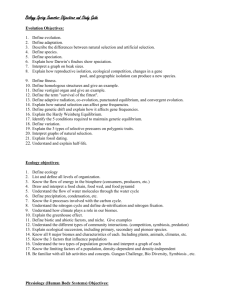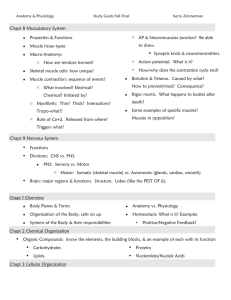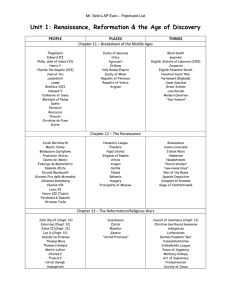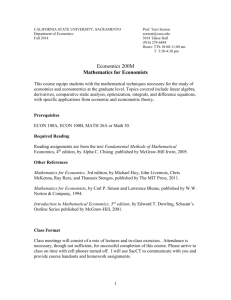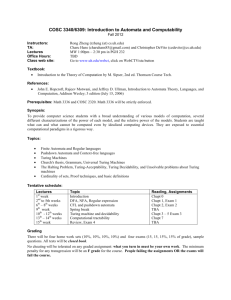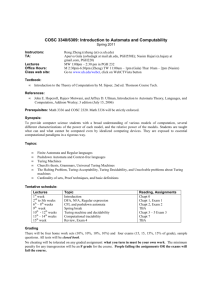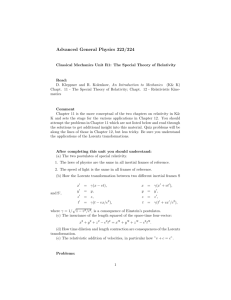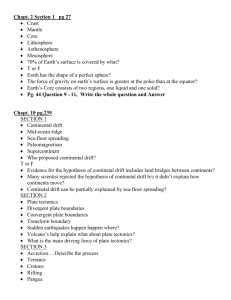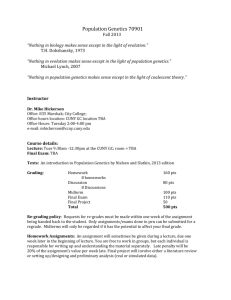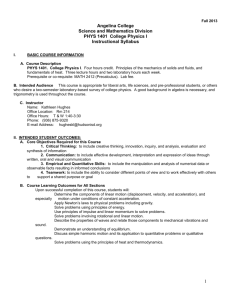Review for Design I Exam - Department of Chemical Engineering
advertisement
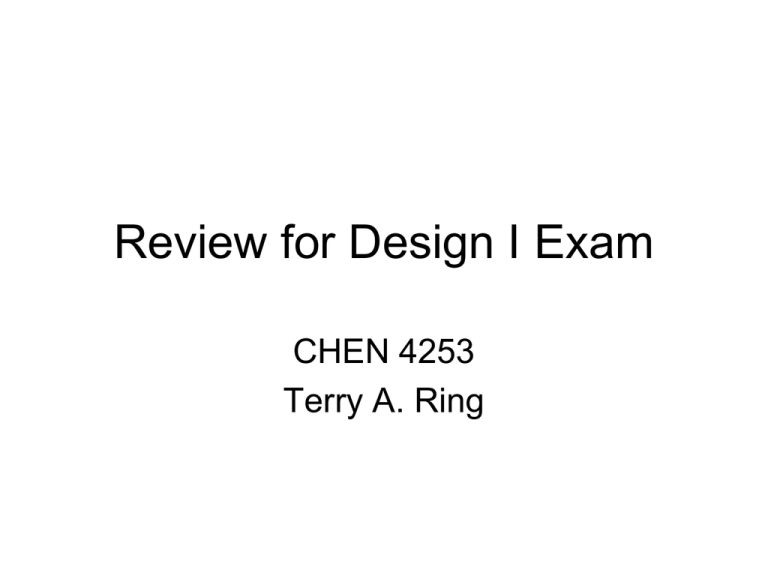
Review for Design I Exam CHEN 4253 Terry A. Ring Materials Covered Week 1-22 August Chapt 1 (p.1 -25), Chapt 2, Chapt 3 Product DesignIntroduction to course – Product and Process Design Product Design-1 Overview Product Design-2 Property Estimation Week 2-29 August Chapters 16 and 17 Product Design-3 Innovation Maps Product Design-4 Six Sigma in Product Design Product Design-5 Engineering Ethics Week 3–5 September (Holiday Monday) Chapt 1 (p25-31) Chapter 4 Process CreationEthics in Chemical Engineering Process Safety Process Design Overview Process Creation Materials Covered-con’t Week 4–12 September (Celanese in Class Monday) Chapt 4&5&6 Aspen for Process Creation– Use of Aspen for Process Creation-1 Use of Aspen for Process Creation-2 Heuristics for Process Simulation Week 5 – 19 September Chapt 4&5 Aspen Tutorials and Problems Solved in Class (Reserve the ICC) Week 6 - 26 September (Away Wednesday and Friday) Chapt 5&6 ProMax Tutorials and Problems Solved in Class (Reserve the ICC) Week 7–3 October Chapter 22-22 (p543-558) &23 Profitability Analyses Annual Costs Earnings Profitability Analysis Week 8- 11 October FALL BREAK What have we really covered? • Product Design (Ethics) • Process Creation Chapt. 1,2&3 Chapt 4 – Heuristics for Process Synthesis • Process Simulators Chapt 6 Chapt 5 – Aspen – Promax • Capital Cost Estimates • Profitability Analyses Chapt 22 Chapt 23 Chapters 1, 2,3 & 4 • Chpt. 1 - The Design Process – Ethics in Chemical Engineering – Product design • Chpt. 2 – Product Development • Chpt. 3 - Molecular Structure Design – Property estimation • Chpt. 4 – Process Creation – Gross Profitability Analysis – Process Synthesis • Start with the reactor (differences in molecular type) • Separation (differences in composition) • Heat transfer, pumping, compression, flash tanks (differences in temperature, pressure, and phase) • Integraton Chemical Product Design Pyramid Figure of Merit Physical Property Estimation • Hansen Solubility Parameters • Group Contribution Methods – – – – Polymer properties Surface tension HLB Heat of Mixing • Drago E and C – Work of Adhesion • Wetting • Bio-concentration factor • Oil-water distribution Coefficient • Lethal Dose • Flash Point Temp. Chapters 5 and 6 • Chapter 5 – Simulation to Assist in Process Creation – Steady-state flow sheet simulation • Table 5.1 – Unit Subroutines • Recycle (tear streams) – Recycle convergence • Chapter 6 – Heuristics for Process Synthesis – Summary on page 174, Table 6.2 – Using these as a start in design/simulation Process Creation • Process Economics – Gross Profitability Analysis • Focus on Reactor – Equilibrium – Kinetics or Conversion • Focus on Separation System • Heuristics in Process Design Chapter 22 - Costing • Accounting – Debits/credits; annual report; balance sheet • Cost Indexes • Capital investment costs (Table 22.9,pg. 547) – – – – Bare model costs Total depreciable capital Total permanent investment Total capital investment • Estimation of Total Capital Investment – – – – Order-of-magnitude Study estimate Preliminary estimate Definitive estimate Investment Chapter 23 - Costing • Estimation of total capital – Order-of-magnitude (method of Hill) • See page 498 • +/- 50% – Study estimate (Method of Lang) • See page 500 • +/- 35% – Preliminary estimate (method of Guthrie) • • • • See page 503 +/- 20% Most likely used Need fob equipment purchase cost – More definitive • Aspen Icarus (but we do not have this license) Process Economics • Capital Cost Estimation – Cost Indexes – Three types • Scaleup of Capital Investments - 6/10th rule • Order of Magnitude Estimate (±50%) - Hill • Study Estimate (±35%) - Lang • Profitability Analysis – ROI, PBP, IRR, VP, Cash Flow Calcs. • Accounting Format for Exam • Exam in 2 parts – Wednesday, 20 October 2009 • In class written exam • Open book, open notes • Last Year’s Exam – Friday, 22 October 2009 • In class, open book, open notes – 1- Aspen Problem – 1- ProMax Problem » Competency Test
